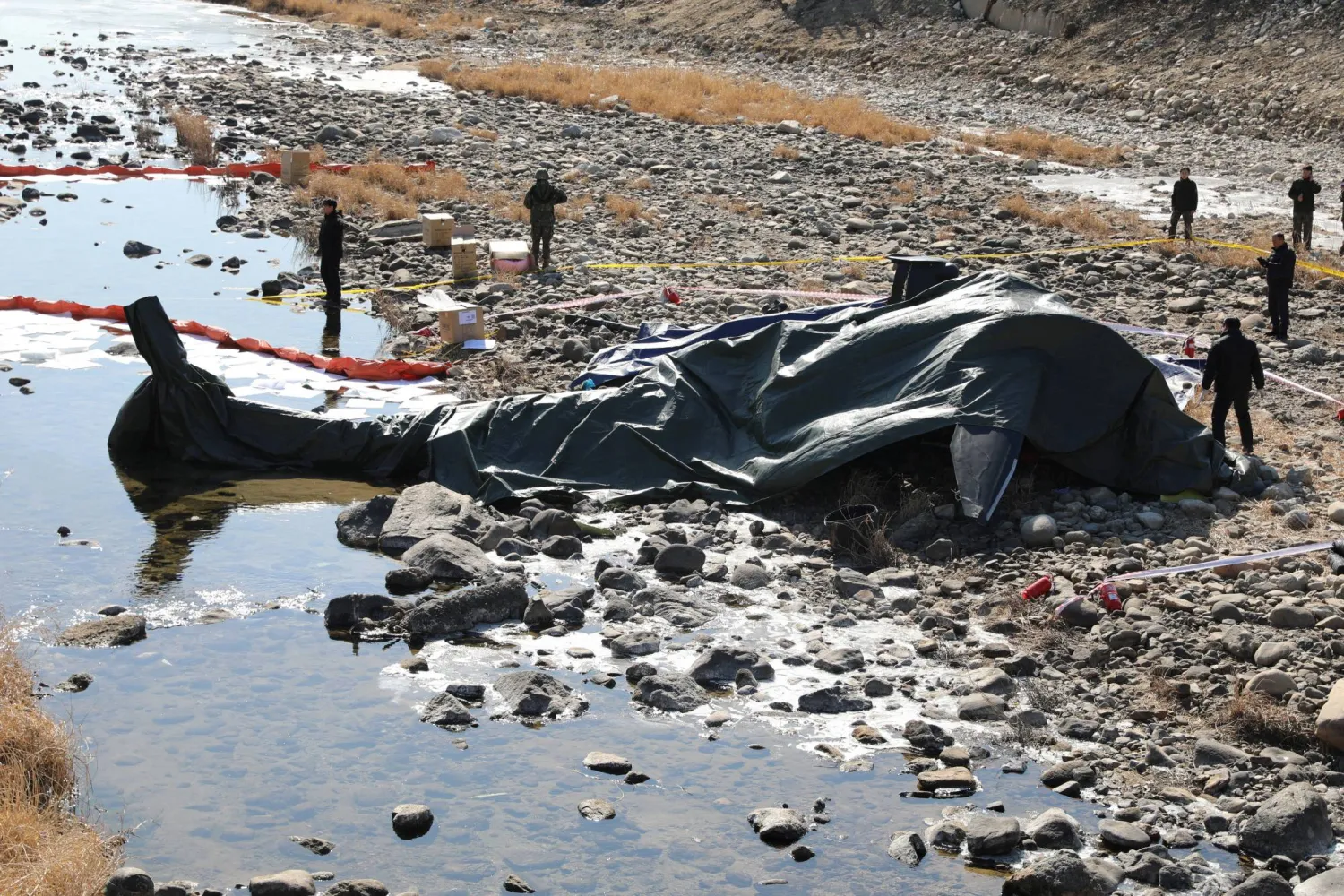The German government is under pressure to draw lessons and act after a Syrian migrant from Deir Ezzor killed three people and injured eight others in a fatal knife attack in the city of Solingen, later claimed by ISIS.
During a visit to the city three days after the incident, Chancellor Olaf Scholz said the attack would not be repeated.
He said his government was looking at more ways to increase the rate of deportations and also promised tougher weapons and knife laws.
A joint working group from the federal government and local authorities will be established to discuss and determine steps to accelerate the deportation of refugees whose requests were rejected, he added.
“We will have to do everything we can to ensure that those who cannot and are not allowed to stay in Germany are repatriated and deported,” Scholz told reporters.
Authorities had planned to deport the suspect in Friday's attack to Bulgaria last year under European Union asylum rules, according to German media.
But officials say when they tried to deport him, they could not locate him and he remained in Germany.
After he disappeared for six months, which is the legal period for authorities to deport him, he returned and registered himself in Solingen and obtained the “right of temporary protection.”
The German opposition has been demanding an end to taking in refugees from Syria and Afghanistan and to deport migrants who have committed serious crimes.
Berlin has no diplomatic ties with the governments of both countries, which means it can't coordinate any deportations to them.
Leader of the conservative Christian Democratic Union (CDU), Friedrich Merz, called for an immediate halt to the admission of refugees from Syria and Afghanistan.
He said the Solingen attack should be a “turning point” in the policies of the socialist-led government, which also includes ministers from the Greens and Liberals.
Last June, a new citizenship law entered into force in Germany. It allowed the government to reduce the minimum period of German residence necessary for naturalization to five years (and even three years in exceptional circumstances), down from eight years.
It also allowed German citizens to hold multiple citizenships whereas currently, dual citizenship is possible only in rare circumstances.
General Secretary of the Social Democratic Party of Germany (SPD), Kevin Kühnert, said many of Merz's proposals stood in contrast to the country's constitution, known as the Basic Law, which upholds the individual's right to asylum, for example.
“The answer can't be that we now slam the door in the face of people who are themselves fleeing from extremists because they are being persecuted by them for their way of life,” Kühnert said.
He said as far as was known, Bulgaria had been prepared to accept the man.
“The federal states are responsible for deportations in Germany, which in this case would have been North Rhine Westphalia,” Kühnert said, referring to the western state where Solingen is located.
He called on state authorities to examine why no action had been taken in the man's case.
Amid this controversy, ISIS released a video on its Amaq news site showing a man covering his face with only his eyes visible. The man was filmed saying he is behind the stabbing in Solingen and that he was ready to carry out an operation in revenge for “Bosnia, Iraq and Palestine.”
It remains unclear whether the man himself carried out the attack in Germany.









